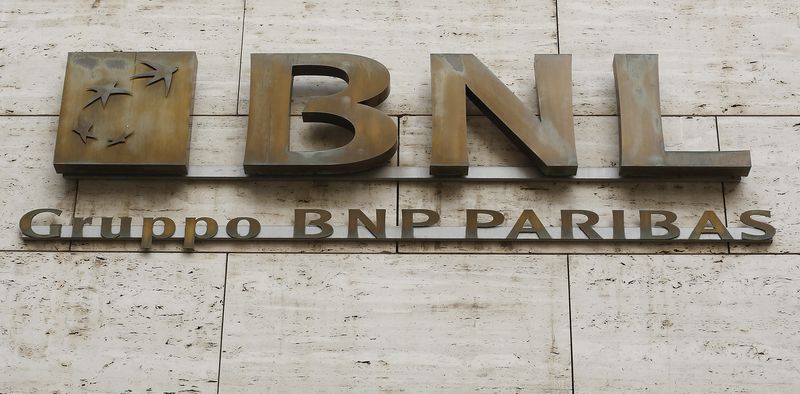MILAN (Reuters) -Italian banking unions on Tuesday challenged the figure provided by BNL, the Italian arm of French banking group BNP Paribas (OTC:BNPQY), over the take up of the previous day's strike in a rare show of open confrontation in the sector.
BNL on Monday said 29.8% of its workers had joined the strike - the first such protest since the 1990s.
The bank said it had ensured it could continue to operate thanks to its digital capabilities at time when workers were also absent due to year-end holidays.
Unions on Tuesday said BNL should clarify how it had calculated the number given than 80% of branches had remained shut.
"Embracing the clear challenge launched by the company unions will strive to render even louder workers' cries of protest," Fabi, First-Cisl, Fisac-Cgil, Uilca and Unisin said in a joint statement.
Such a degree of confrontation is unusual in Italy's banking sector, where workers are only laid off through early retirement schemes offered to older employees on a voluntary basis and very costly for lenders to fund.
Under such schemes, workers receive up to 80-90% of the salary from a fund financed by the banks laying off staff until they actually qualify for pension.
Employees' requests to join the scheme normally exceed the number of departures planned by banks.
The animosity highlights the difficult phase the industry is enduring with negative rates making lending unprofitable, while it faces a digital challenge from non-banking players which are not subject to the same tight regulation and oversight.

Workers at BNL protested against its decision to use external providers for IT and back office services, a move that unions said affects 900 out of a total of 11,500 BNL employees in its central offices and around 700 branches across Italy.
Unions have also voiced grievances about BNL's sale to Worldline in July of an 80% stake in its card payment processing business Axepta Italy.